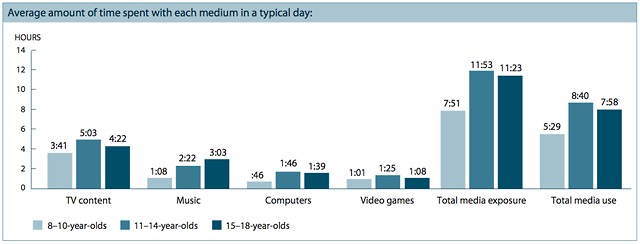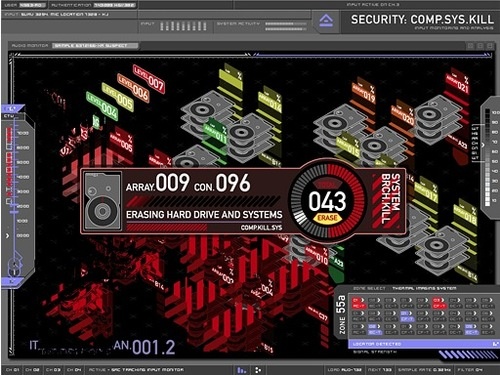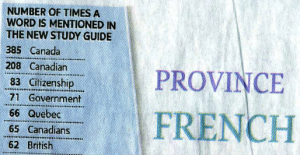ars technica has a good summary of the Kaiser Family Foundation Report: Generation M2: Media in the Lives of 8-18-Year-Olds. Their story, Kids consume media as a full-time job—many getting overtime (Chris Foresman, Jan. 21, 2010) ends with some good news,
The report notes that kids spend less time reading magazines or newspapers, though online reading has supplanted that to some degree. However, the average time spent reading books has stayed relatively steady, at about an hour per day. Only the heaviest of media users reported increases in poor grades or low levels of personal contentment. And it seems parents that are active about placing restrictions on media use have kids that consume significantly less media than kids without restrictions. Leaving the TV off, limiting hours of TV, video game, or computer use, and having rules about types of content all help curb media use. One final bit of good news: kids on average spent almost two hours a day engaged in physical activity, up slightly from five years ago.
The bad news is that media consumption is becoming a full time job for kids taking up all the time they are asleep or at school. Is there anything other than media consumption?





